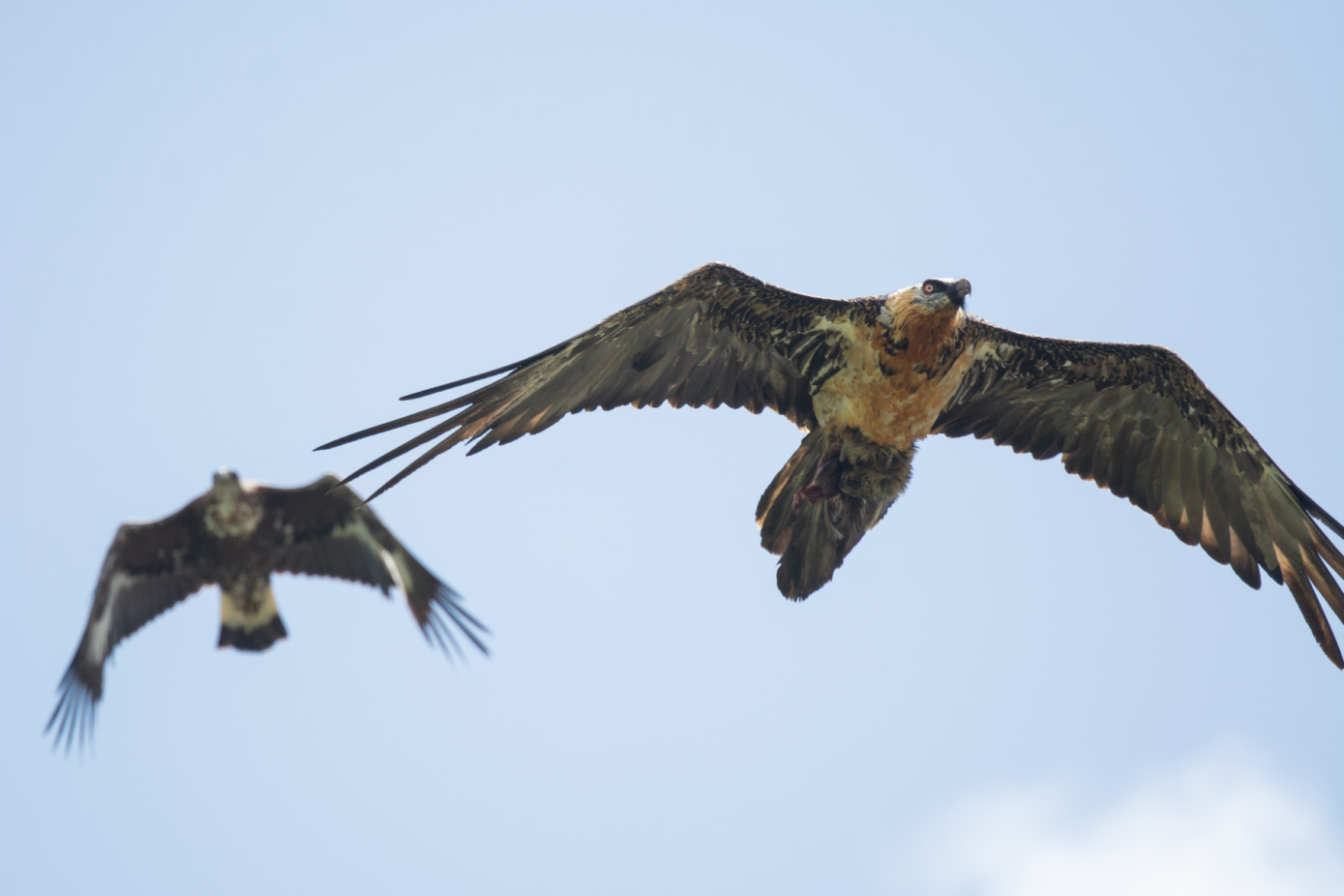Bearded Vulture that toured Britain seen for first time in three years
The Bearded Vulture that famously toured Britain during summer 2020 has been seen again in the Swiss Alps, some 1,200 km away from her last known location in East Sussex.
The bird, which was called 'Vigo' during its British stay but was later confirmed via genetic analysis to be a female known as 'Flysch', visited a Bearded Vulture reintroduction site near Melchsee-Frutt in the Swiss Alps during 2023.
'Flysch-Vigo', as she is now called by Vulture Conservation Foundation (VCF), was observed feeding at a carcass with two recently reintroduced vultures. The bird, whose identity was unknown at the time, got into a scuffle and lost a feather in the process. As with when she was in England, genetic analysis was able to confirm her individual identification.

An unknown Bearded Vulture that visited the Melchsee-Frutt release site in the Swiss Alps in 2023 turned out to be Flysch-Vigo after genetic analysis (Franziska Lörcher).
Flysch-Vigo had been 'missing' since her four-month-long stay in Britain, which saw her initially sighted in West Midlands airspace on 26 June 2020 before she spent the summer in the Peak District. After visits to Norfolk, and the Lincolnshire and Cambridgeshire fens, she was last seen flying out to sea at Beachy Head, East Sussex, on 15 October. After that, the trail went cold, and nobody knew if she had made it back to the Alps.
Flysch-Vigo hatched on 6 July 2019 in a wild nest in Haute-Savoie, in the French Alps. She is the offspring of a wild-hatched father and a zoo-reared mother named 'Zufall', who was released into the wild in 2006.
Bearded Vulture is one of Europe's most monitored species, thanks to the International Bearded Vulture Monitoring Network (IBM), which records hundreds of observations annually through field sightings, GPS data, and genetic analyses. Since 1998, genetic monitoring has covered both captive-bred and wild Alpine Bearded Vultures. Human keepers collect blood samples from captive birds, while local IBM partners actively search beneath nests to collect feathers, enabling them to track the wild population and secure genotypes of wild-fledged birds.
A statement from VCF said: "Questions remain about Flysch-Vigo's future – will she settle in the Swiss Alps, continue her travels, or return to her native French Alps? Conservationists remain hopeful that ongoing monitoring will identify her once again, ideally with offspring."

